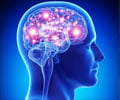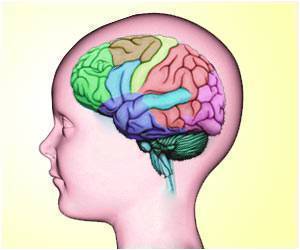A new study done by Boston Children's Hospital states that intermittent Fasting is said to reduce Seizure by DEPDC5 signaling using mTOR inhibitor in the brain.
- Fasting can reduce seizure occurrence-A novel research by Boston Children's Hospital
- Restricting calories has traditionally been associated with fewer epileptic episodes
- Signaling by DEPDC5 in the brain reduces seizures by using an mTOR inhibitor A length of time without eating or, in some situations, drinking only fluids is referred to as fasting. There are numerous justifications for people to choose to fast
What Motivates People to Fast?
There are several possible justifications for people’s desire to fast. These include:- Religious motivations
- As a component of a diet for weight loss or health reasons
- Prior to anesthesia
- Eating regular food the first day and then fasting the next is known as alternate-day fasting.
- Eating normally for five days in a week and fasting for two days is called 5:2 diet.
- Eating regularly but only during a set period of time each day using the time-restricted eating method (1✔ ✔Trusted Source
Fasting and epilepsy
Go to source).
Read More..
The initial line of treatment for epilepsy is an anticonvulsant drug, however one of the first two drugs are effective for two thirds of patients only. There are still a sizable proportion of individuals who require extra care. The ketogenic diet is a treatment option that is underutilized for people who do not have a lesion that can be surgically removed (2✔ ✔Trusted Source
Intermittent fasting: A “new†historical strategy for controlling seizures?
Go to source).
Restricting calories has long been linked to fewer seizures in people with epilepsy. The effects of fasting on brain neurons are now better understood according to new research from Boston Children's Hospital, which may also pave the way for innovative methods that do not require fasting or restrictive diets. The journal Cell Reports published the findings.
According to first author Christopher J. Yuskaitis, MD, PhD, a neurologist from the Epilepsy Center and Epilepsy Genetics Program at Boston Children's Hospital, "this study represents the first step in understanding how dietary therapies for epilepsy work (3✔ ✔Trusted Source
How fasting affects neurons in brain: Research
Go to source)".
Details of the Study:
First Step is Sensing of Amino Acids
In recent work, it was demonstrated using a mouse seizure model that mTOR signaling was decreased in the brain after fasting. Additional research on rat neurons grown in culture suggests that the absence of three amino acids such as leucine, arginine, and glutamine is what causes this fasting effect.DEPDC5 (or DEP domain-containing 5) is a human protein of poorly understood function. DEPDC5-related epilepsy are characterized by focal seizures, with seizure onset in a discrete area of the brain. The group showed that the DEPDC5 protein can detect the presence of these nutrients. When DEPDC5 was removed from the brain, mTOR activity was unaffected, and fasting no longer prevented seizures in the mice.
This may be accomplished by consuming meals that are lower in the three amino acids or by using drugs or supplements that prevent the absorption of those amino acids.
Next step is a ketogenic diet
Yuskaitis and associates are currently interested in testing specific amino acid-free diets on animal models to see how they affect seizure frequency. They also aim to investigate how the ketogenic diet, a well-known method of treating epilepsy, reduces seizure frequency. Nobody currently understands why this high-fat, low-carb diet is effective(3✔ ✔Trusted SourceHow fasting affects neurons in brain: Research
Go to source,4✔ ✔Trusted Source
Why does fasting reduce seizures?
Go to source ).
Hoping that this will lead to the discovery of new dietary-based treatments, in addition to the ketogenic diet, “ which can be challenging to follow for long periods of time due to its side effects," adds Yuskaitis.
Findings from these unusual conditions may open possibilities for better therapies for epilepsy generally. This type of research may also offer a new perspective on neurologic disorders in general(3✔ ✔Trusted Source
How fasting affects neurons in brain: Research
Go to source,4✔ ✔Trusted Source
Why does fasting reduce seizures?
Go to source ).
References:
- Fasting and epilepsy - (https://www.epilepsy.org.uk/info/daily-life/fasting-ramadan)
- Intermittent fasting: A “new” historical strategy for controlling seizures? - (https://www.ncbi.nlm.nih.gov/pmc/articles/PMC3740951/)
- How fasting affects neurons in brain: Research - (https://www.hindustantimes.com/lifestyle/health/how-fasting-affects-neurons-in-brain-research-101662699354076-amp.html)
- Why does fasting reduce seizures? - (https://www.eurekalert.org/news-releases/964159)
Source-Medindia















